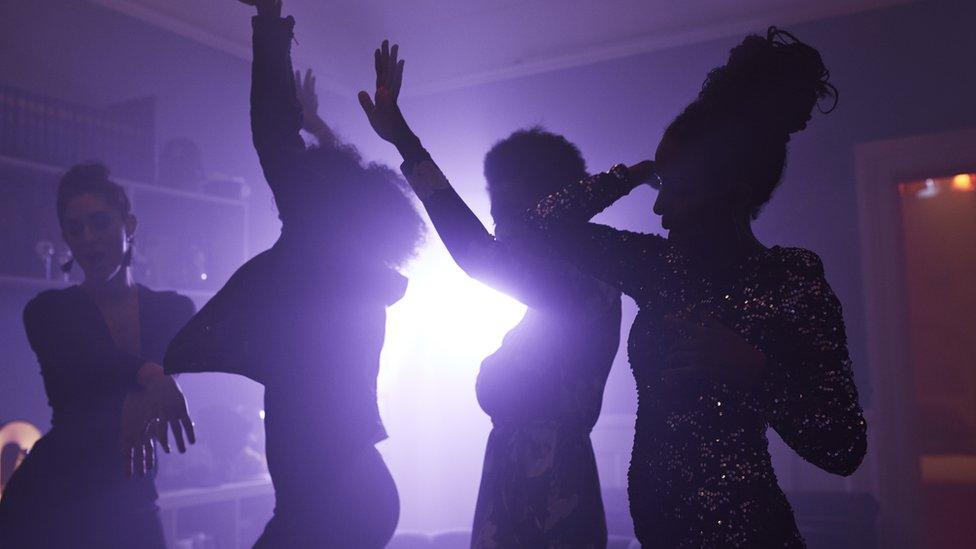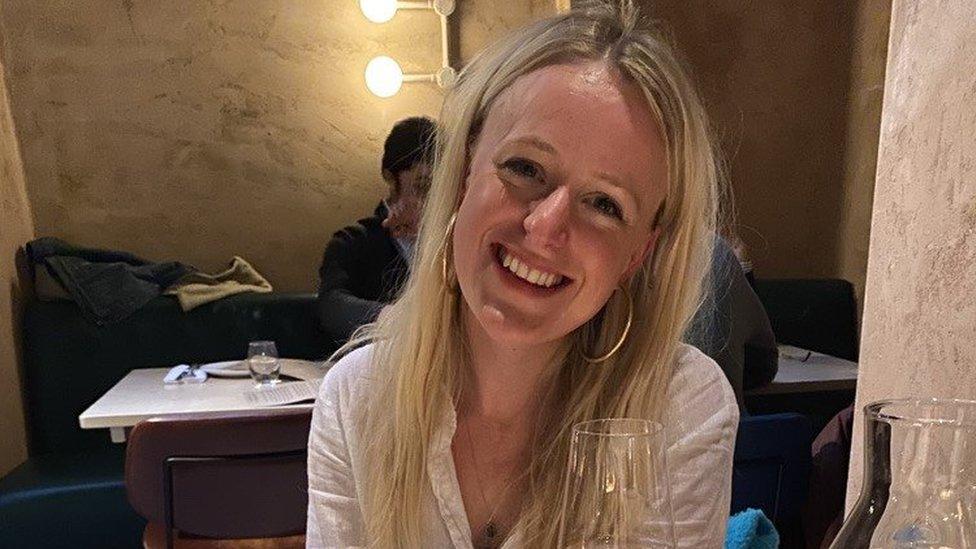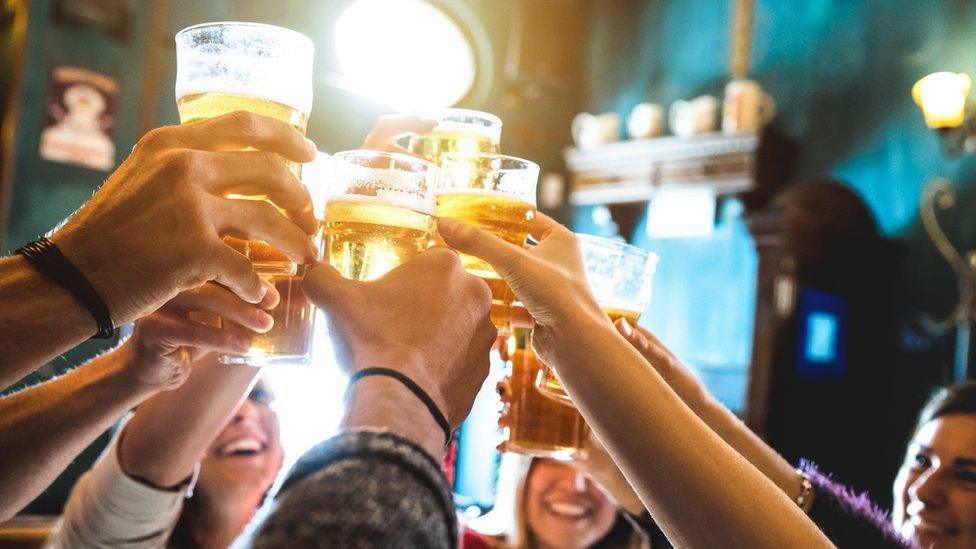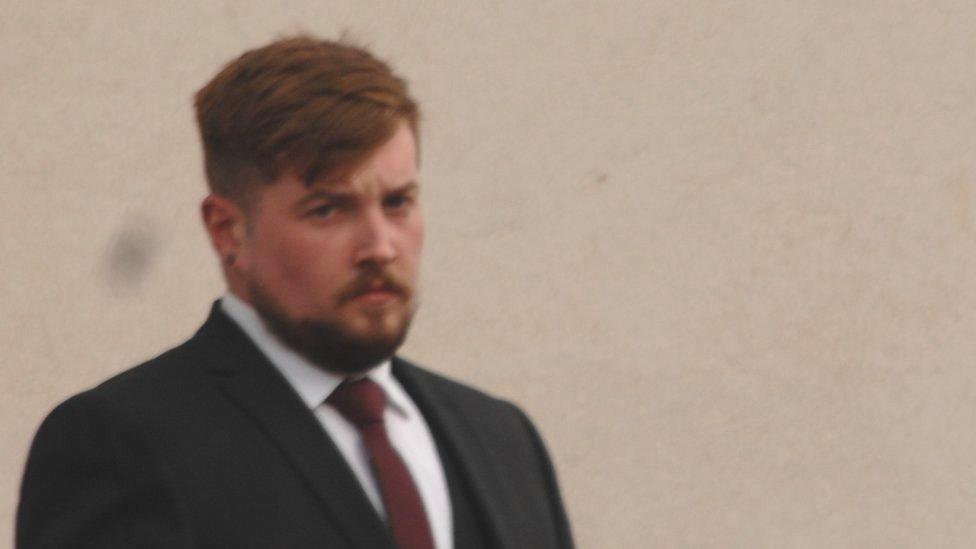Drink spiking at house parties 'big concern' for police
- Published

Drink spiking incidents at house parties have become the "biggest concern" for lead police officers tackling the crime in England.
"You naturally assume everybody there knows everybody so you can wrongly think it's a safe environment," says Sgt Dave Moore.
A charity says it's seeing an anecdotal rise of cases in spiking in places that don't have CCTV or security staff.
Jayda, 20, felt "violated" when she was spiked at her own party two weeks ago.
"I couldn't see, I felt sick, had stomach pains, and was in and out of consciousness," the Manchester University student tells Radio 1 Newsbeat.
The symptoms of drink spiking are often similar to being drunk, and include slurred speech, dizziness, drowsiness, sickness, headaches, confusion and passing out.
'I remember screaming'
For Jayda, whose name we've changed, those symptoms lasted all night.
"The worst thing was that I kept having panic episodes. I remember screaming and feeling trapped in my body."
It's left her feeling angry.
"It happened at my home, a place where I should feel safe."
Sgt Moore says it's this mindset that makes house parties "an easier environment for perpetrators to apply their trade".
He works for Devon and Cornwall Police, which leads on tackling drink spiking across the country.
"There's no bar staff to pour drinks, someone can go get a drink and pop something in there because there's no CCTV.
"And when someone starts to feel unwell, all the perpetrator has to do is say: 'I know them, I'll take them home.'"
Officers say drink spiking is also more common at festivals - where cameras and security staff can provide less coverage than in pubs or clubs.
Tara Berwin prides herself on being someone who remembers what happens on nights out, but she's sure her drink was spiked at Summer Social festival in London this summer.
"I was dancing and then I genuinely don't remember a single thing," the 27-year-old says.

Tara believes there's a stigma around being spiked: "To this day people roll their eyes and say it was my fault"
Friends have since filled Tara in on what happened.
"My mates found me behind a drink van being sick with a guy I don't know. I'm never sick when drunk so it seemed strange," says Tara, who's a personal trainer.
"My fingers were clasped, my eyes were rolling back into my head, and my jaw was swinging. My friends knew something was wrong and took me home in a taxi."
Before that the man had tried to say he knew her and that he would take her home.
"It's terrifying - if my friends hadn't found me, I'd have probably got in a taxi with a stranger," Tara says.
'Not always stranger danger'
The Alcohol Education Trust, which helps 11 to 25-year-olds to make safer choices around alcohol, say they're hearing an anecdotal rise in spiking occurring in places that don't have CCTV or security staff.
The charity speaks to more than 25,000 young people every year and says over half the spiking stories they hear about happen in places where people might not have their guard up so much.
"Most people we talk to, their spiking incidents have happened at house parties and festivals. It's not necessarily in bars and clubs, perhaps because people know they're more likely to be caught there," says the charity's CEO Helena Conibear.
Helena warns that often people are spiked by someone they know - and she says in almost half of the stories the charity hears, people are spiked by those in their wider friendship group.
"We get a lot more contact during Freshers' Week, a time when young people are vulnerable, because they've moved away from home and aren't with close friends," she says.
"But it's not always stranger danger."

How to help a friend who you think has had their drink spiked
Stay with them and keep talking to them
Call an ambulance if their condition deteriorates
Don't let them go home on their own
Don't let them leave the venue with someone you don't know or trust
If possible, try to prevent them drinking more alcohol as this could lead to more serious problems
Urine and blood tests carried out in the first 24 to 72 hours are most likely to detect drug traces

Figures obtained by the BBC in 2019 revealed a rise in recorded cases of drink-spiking, with more than 2,600 reported incidents in England and Wales since 2015.
But Helena says statistics like these don't reflect the number of times spiking happens, as many people don't report what's happened to police or visit their GP quickly enough to do a blood test.
Saskia Boissevian is one of them.
She was in a bar in London when two men offered her and a friend a drink, and that's the last thing she remembers.
The 29-year-old, who's from Pembrokeshire in Wales, woke up the next morning on her bathroom floor and spent the following two days being sick.

Saskia says she'll be more cautious when going for drinks in future
Saskia went to the police after three days - too late for medics to take blood and urine samples as the drugs would have left her system.
She says she delayed reporting it because she "felt a lot of shame".
"Initially I didn't want to accept it. I thought, I'm 29, I'm responsible.
"I felt really, really silly and when I did report it, the police want all the facts - where you were, what happened. Sometimes when you recall a night out, it feels embarrassing and you worry you won't be believed."
Helena says that's a common feeling but encourages anyone who thinks they've been spiked to go to the police as well as hospital A&E or a GP.
"If it's not reported, then these awful people can't be stopped."


Follow Newsbeat on Instagram, external, Facebook, external, Twitter, external and YouTube, external.
Listen to Newsbeat live at 12:45 and 17:45 weekdays - or listen back here.
- Published7 January 2020

- Published21 September 2021

- Published15 March 2021
